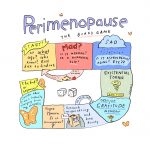The insightful data presented in this open access preprint paper highlights the ongoing trend of increasing human life expectancy. Over the years, advancements in the treatment of age-related diseases have contributed to a gradual rise in life expectancy, both at birth and middle age. While these improvements have primarily been unintentional outcomes of medical progress, there is a growing interest in deliberately targeting aging mechanisms to further enhance longevity. The World Health Organization’s framework on healthy aging emphasizes individual capabilities and their interaction with the environment, shedding light on the importance of intrinsic capacity in determining overall well-being. Through longitudinal studies on English and Chinese populations, significant improvements in intrinsic capacity among older adults have been observed, suggesting that today’s older individuals exhibit higher levels of functioning compared to previous generations. The findings indicate a positive trend in cognitive health and overall vitality, reflecting a potential shift towards a “younger” biological age for older adults. For more information, you can access the full preprint paper at the following link: https://doi.org/10.21203/rs.3.rs-4271576/v1.





